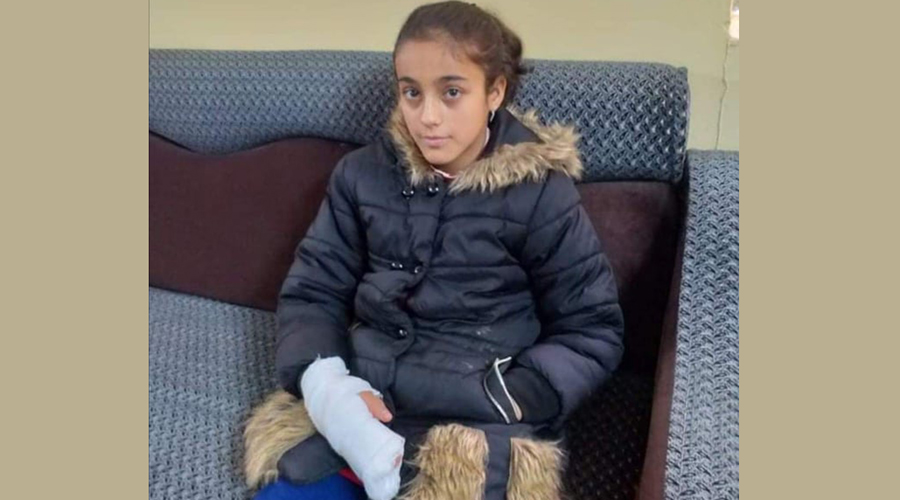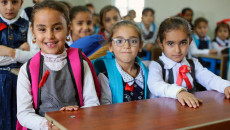A teacher beats Dilkhosh Kamaran with a stick as corporal punishment causing a crack in her right hand. Photo widely circulated on social media platforms.
The director of education in Kirkuk said they have formed a committee to investigate complaint by a parent claimed a teacher has been their daughter, causing to her right hand.
Sherzad Rashid Kaka, director of Kurdish education department funded by the Kurdistan Regional Government KRG, said in one of Kurdish teaching schools on Wednesday, parents of “Dilkhosh Kamaran Ibrahim, grade six, filed a complaint to Kurdish department of directorate general of education in Kirkuk.
“The teacher has beaten a student with a stick in her palms, causing a crack,” Kaka said in a statement by the Kurdish department. “We have decided to investigate the incident immediately by a committee which will determine the penalty per effective rules and regulations.”
The teacher has beaten a student with a stick in her palms, causing a crack
This is the second case of corporal punishment in 2021-2022 academic year in Kirkuk.
A video circulated on social media networks on November 10th showed a teacher in a school standing in front of a white board beating a student firmly three times by a mop stick in class and in front of the eyes of his classmates then reproaches him.
The director general of Education department in Kirkuk has decided to halt promotions for one year of the teacher and to send him out of town and the procedures to be endorsed by Iraqi ministry of education.
Kaka called on the teachers to refrain from corporal punishment which is a “negative phenomenon which is prohibited per instructions of ministry of education. Students are our kids and we have to deal with them in merciful way.”
One of the challenges of education in Iraq is lack of professional teachers.
Iraq’s education infrastructure is in ruins in many parts of the country; one in every two schools is damaged and needs rehabilitation, says a report by UNICEF about education in Iraq.
A number of schools operate in multiple shifts in an attempt to accommodate as many students as possible, squeezing the little learning time that children have.
Kirkuk, Iraq's second largest oil reserves, is ethnically a mixed province of Kurds, Arabs, and Turkmens. It has long been at the center of disputes between Baghdad and the autonomous Kurdistan Regional Government KRG.
Article 140 of the Iraqi constitution in 2005 outlined a road map for disputed territories calling for normalization, census and referendum to determine its administration all in two years but only part of the first stage has been implemented up to the present.
Kurds, whom controlled Kirkuk till 2017 when the so-called Islamic State ISIL was ousted, wanted Kirkuk, 238 kilometers north of Baghdad, to become part of Iraqi Kurdistan Region IKR, which has been opposed by the Arab and Turkmen populations.
Following the defeat of ISIL in 2017, Iraqi forces under operation (Law Imposing) took over control of the disputed territories in October 2017. Kurds lost the positions of Kirkuk governor and tens of senior admin and security positions.
Kurds in Kirkuk were happy for educating their kids their native language. The process was funded by the KRG which employed over 8,000 teachers, a process lamed in 2014 for irregular payment of monthly salaries and funding.






